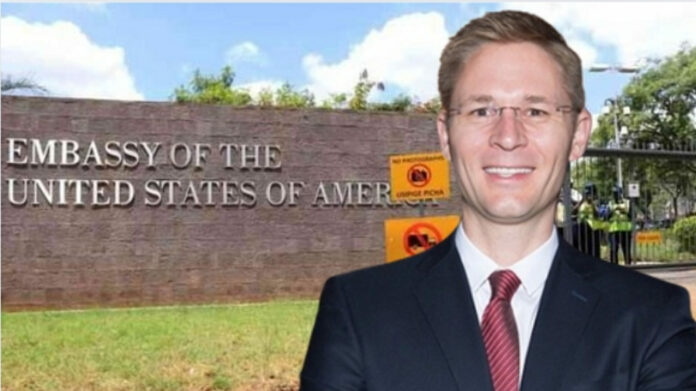‘The US visa officer was rude! She didn’t ask for my documents! He was too cold and denied me after two questions!’ These are some of the complaints that have become common from a majority of hopeful visa applicants who visit the US Embassy’s consular department for visa interviews.
As the voices of visa applicants questioning the criteria used by consular officers to weigh and judge an application increase, ex Visa Officer and currently US Immigration Attorney Travis Feuerbacher has shed light on what goes on during a US visa interview and what visa applicants need to know about visa officers at the US embassy when they go for their interviews.
“When I worked at the US Embassy visa section… we would get to work with my colleagues, look out the window and we would see hundreds if not thousands of visa applicants waiting for their visa interviews,” said Travis who interviewed over 80,000 visa applicants during his career at various US Embassies in the world.
Travis stated that every US diplomat with very few exceptions is required to do at least one year of visa interviews during their first two overseas assignments.
“That means you might encounter a Visa officer that never intended to spend their time interviewing Visa applicants now you also might encounter a Visa officer that has chosen to do that as their career and they’re really excited to see you now this is not to say that you’re going to encounter somebody who’s super grumpy and has no interest in talking to you at all,” said Travis who is an immigration attorney at ZF Visa & Immigration.
Travis said that during his time as a US visa officer, there were times when he would interview anywhere from 150 to 250 Visa applicants per day on average.
“If you think about what that means, mathematically, I had between two and a maximum of three minutes per Visa applicant to go through all of the key questions that I needed to ask and then to make a very crucial decision,” he said.
Travis says that as you approach the window, the officer will probably already have some information about you pulled up on their screen.
Demeaned and rejected: Our visa interview woes at the US Embassy in Kenya
They may have to scan a barcode on your confirmation page or maybe a sticker on the back of your passport but quite often they’ll already have some of your information available.
“On their computer screen on their monitor, the officer will obviously have a picture of you and your name, your date of birth, some key biographical data,” he said. He added that beyond this, the officer will have access to three crucial pieces of information.
One is have you applied for a Visa before and was that application denied or was it approved, two is have you applied for a visa to immigrate to the United States and this could complicate your application as you have to prove that you’re going to come back to your place of residence outside of the United States and if you can’t prove, that you’ll likely be rejected or denied under section 214b.
Third, your fingerprints and your photo and your passport photo that you bring with you will be run-checked by their system against many other photos to determine if there’s any identity theft or fraud, or if you have any degree of criminal history.
I got Canada visit visa in Nairobi; it’s now revoked and I’ve been banned for 5yrs
“The officer is going to look through key details on your DS160 application form, your fingerprint history, whether you have an outstanding immigrant Visa petition, and your facial recognition results in a matter of seconds,” said Travis.
“Visa officers are really really good at looking through all this information really really quickly; it becomes essentially muscle memory. The officer might ask you one question or 10.”
Travis states that by the time the questions are being asked, the officer may have already largely made up their mind after looking through all of your data.
He adds that it is important to know that under 214B, you’re essentially guilty until
proven innocent. You’re assumed to not qualify for your visa and you’re assumed to be an intending immigrant to the United States until you can prove otherwise.
The visa officer is probably not going to look at any of your documents because documents can easily be forged, including official documents like passports.
“Visa officers are especially trained to look you in the eye as you answer their questions, they’re trained to spot signs of maybe less than truthful answers, hesitation, and nervousness from telling lies,” says Travis.








